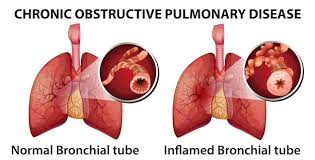Respiratory diseases are a group of disorders that affect the lungs and airways, making it difficult for individuals to breathe properly. Respiratory diseases can have a significant impact on a person's daily life, affecting their ability to perform simple tasks and even leading to hospitalization in severe cases. Symptoms of respiratory diseases can vary widely, including coughing, wheezing, shortness of breath, and chest pain.
Seeking medical attention and proper diagnosis is crucial in managing these conditions and preventing further complications. These diseases can range from mild conditions such as the common cold to more serious illnesses like pneumonia and chronic obstructive pulmonary disease (COPD). It is essential to understand the causes, symptoms, and treatment options for respiratory diseases to prevent complications and improve quality of life.
One of the main causes of respiratory diseases is smoking. Cigarette smoke contains harmful chemicals that can damage the lungs and airways, leading to conditions such as lung cancer and COPD. Individuals need to avoid smoking and exposure to secondhand smoke to reduce their risk of developing respiratory diseases.
Another common cause of respiratory diseases is air pollution. Polluted air can contain particles and gases that irritate the lungs and trigger respiratory symptoms. Individuals living in urban areas or near industrial sites may be at a higher risk of developing respiratory diseases due to exposure to air pollution. It is important to monitor air quality levels and take precautions to reduce exposure to polluted air.
Infections are also a major cause of respiratory diseases. Viruses, bacteria, and fungi can infect the respiratory system, causing symptoms such as coughing, wheezing, and shortness of breath. Respiratory infections such as the flu and pneumonia can be serious and may require medical treatment. It is important to practice good hygiene, such as washing hands regularly and avoiding close contact with sick individuals, to prevent respiratory infections.
The symptoms of respiratory diseases can vary depending on the type and severity of the condition. Common symptoms include coughing, wheezing, shortness of breath, chest pain, and fatigue. Individuals with respiratory diseases may also experience frequent respiratory infections, such as bronchitis or sinusitis. It is important to seek medical attention if you experience persistent respiratory symptoms to receive an accurate diagnosis and appropriate treatment.
Treatment options for respiratory diseases depend on the type and severity of the condition. Mild respiratory diseases such as the common cold or bronchitis may resolve on their own with rest and hydration. However, more serious respiratory diseases such as asthma or COPD may require medication, inhalers, or oxygen therapy to manage symptoms and improve lung function. It is important to work closely with a healthcare provider to develop a treatment plan that meets your individual needs.
In addition to medical treatment, lifestyle changes can also help manage respiratory diseases. Eating a healthy diet, exercising regularly, and avoiding smoking can improve lung function and reduce symptoms of respiratory diseases. It is important to maintain a healthy lifestyle to prevent complications and improve the quality of life for individuals with respiratory diseases.
Prevention is key when it comes to respiratory diseases. Individuals can reduce their risk of developing respiratory diseases by quitting smoking, avoiding exposure to air pollution, and practicing good hygiene. Vaccinations, such as the flu shot and pneumonia vaccine can also help prevent respiratory infections and complications. It is important to take proactive steps to protect your respiratory health and reduce your risk of developing respiratory diseases.
In conclusion, respiratory diseases are a common and serious health problem that can affect individuals of all ages. By understanding the causes, symptoms, and treatment options for respiratory diseases, individuals can take proactive steps to prevent complications and improve lung function.
It is important to seek medical attention if you experience persistent respiratory symptoms and work closely with a healthcare provider to develop a treatment plan that meets your needs. With proper care and management, individuals with respiratory diseases can lead healthy and fulfilling lives.
Cordy Active & Reishi Can Be Of Help.
